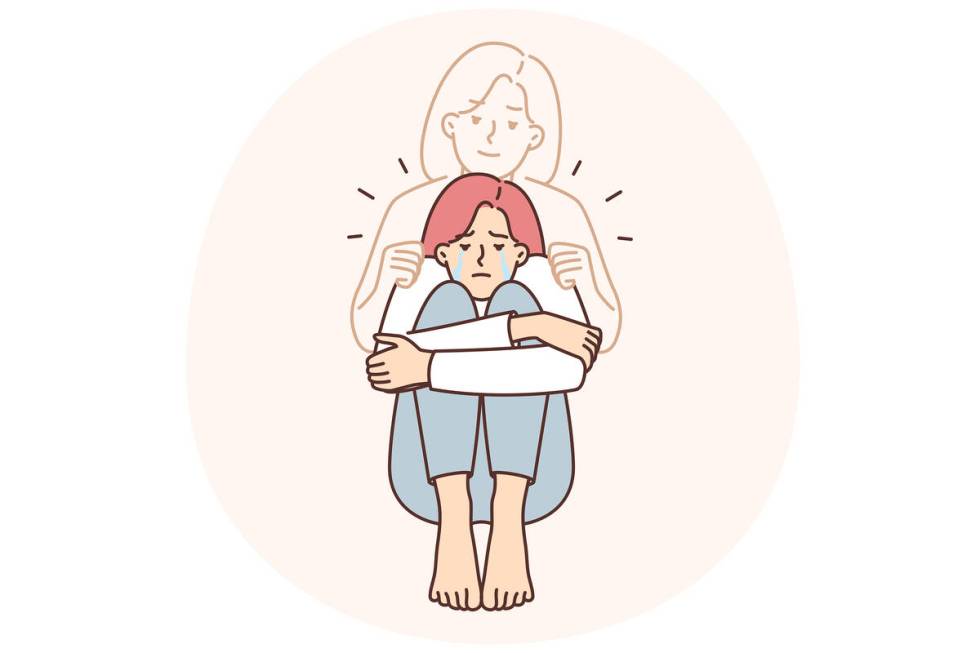When Mother’s Day isn’t a joyful holiday, here are ways to cope

For many people, Mother’s Day celebrates special relationships, reinforces family bonds or evokes fond, poignant memories.
But not for everyone. In some circumstances, the day of flowers and hugs and tributes to Mom can spark sadness, stress or even resentment.
“Lots of people might struggle with the holiday,” said Dr. Angela Hiefner, a family therapy specialist at UT Southwestern Medical Center in Dallas. “They can really feel lost in the celebrations.”
Dr. Erin Hunter, director of the Mary A. Rackham Mental Health Clinics at the University of Michigan in Ann Arbor, said there are many reasons why Mother’s Day can be a difficult time.
People can be grieving for a mother or mother figure who has died, or enduring a difficult mother-child relationship that’s still ongoing, she said. Someone who wants to be a mother may be battling fertility issues and dealing with the anguish of unfulfilled hopes.
“You feel like you’re missing out on this special time that other people get to have,” Hunter said. “If you want to avoid psychological triggers, it can be really hard.”
Coping strategies
The two mental health professionals suggest strategies to cope with Mother’s Day if the occasion is not likely to generate the joy that its founders intended.
The first step, Hiefner said, is communication — “both from the person’s perspective who is struggling with the holiday, but also for their family members who are wanting to celebrate around them but feel like they are walking on eggshells and aren’t sure how to do that in the best or most sensitive way.”
That may sound simplistic, she said, “but we often overlook asking the question: ‘I know this is a hard time for you, but what would be easiest for you? Or do you want to not celebrate the day, because that’s an option, too.’ ”
For people who have a hard time coping on Mother’s Day, here are some options to consider:
■ Connect with other loved ones: “That could be family, friends or a community you’re part of,” Hunter said. “Mothering gets associated with nurturing, and there are many ways to nurture outside of mother relationships. Think about who are the nurturing people in our lives and honor them.”
■ Take care of yourself: “Plan to have some downtime or write in a journal,” Hunter said. “Maybe it’s a day to take a break from social media or any kind of news. Spend some time in nature, and celebrate who you are and the good things you have done.”
■ Keep it simple: For those who recently lost a mother, “sometimes people get caught up in that it has to be a big thing,” Hunter said. “Focus on what’s easy and achievable. I know people who light a candle next to their (late) mother’s picture, or share stories about her, just to pause and think about her.”
Acknowledge your emotions
If nothing works perfectly, both experts said, don’t feel bad about being sad.
“Sometimes we think if we don’t touch the sadness we can scoot right by it,” Hiefner said. “People need to recognize it’s OK for there to be mixed feelings about the day, to have joyfulness and sadness. We need to acknowledge the emotions, show support and avoid the tendency to ignore it. That can make the holiday easier for everybody to move through and enjoy.”
There’s nothing wrong with shedding a few tears, Hunter said. “That can be a great emotional release as well. It lets you move forward and not get stuck in the space of loss and missing out.”
Above all, Hiefner said, be flexible in a situation where there are no absolute rights or wrongs.
“Every person responds to stress and grief and other emotions differently,” she said. “We can come together and talk about what the holiday means to us.”